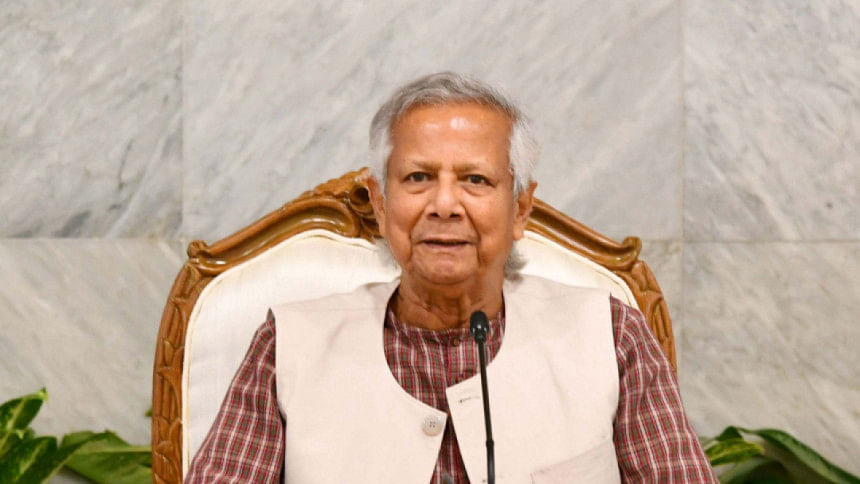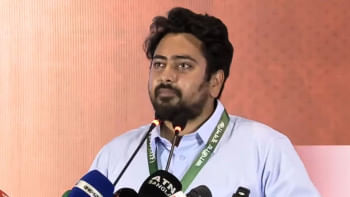1 year report card: how much has Bangladesh reformed under the interim government?

It has been one year since the citizens of Bangladesh uprooted fascism and decided to embark on a journey of freedom, prosperity and growth. This was never going to be an easy task. People from all walks of life decided to walk out into the streets and stand in front of bullets, machetes, and APCs, with a simple hope—that the Bangladesh their children grow up in will have equal opportunities. No quotas. Only merit shall rule. Merit would be the ultimate qualification metric.
However, stray vandalism gradually led to a culture of "mobocracy" leaving citizens at the mercy of a broken legal justice system. The United States Commission on International Religious Freedom (USCIRF) stated in a report in July 2025 that 'tensions and religious freedom concerns still persist'. Even with all the constant barrage of protests, conspiracies and sheer disdain, the interim government has tried its best to ensure a smooth transition towards a more open and democratic future. The chief adviser's announcement of the July Declaration has therefore managed to life people's spirits. A key component that has been at the heart of all discussions is 'reform'.
Fifteen high‑level reform commissions were formed—including the electoral system, anti‑corruption, constitutional law, police, judiciary, public administration—to lay the groundwork for systemic change. Reports from most commissions were submitted in early 2025, including a proposal to establish a National Constitutional Council to oversee institutional checks and balances. Combining this with the strengthening of the election commission and administrative reforms such as dissolving corrupt boards, replacing top mayors and administrators, property disclosures, and merit‑based appointments show the interim government's commitment towards nation building, and hopefully this is the start of a political culture that will seek to carry forward the commitments of a government.
The culture of vengeance needs to be eliminated, and as such bodies such as the Anti-Corruption Commission (ACC) is developing policy proposals (with the help of Transparency International Bangladesh) to tackle systemic corruption and recover laundered assets—including legislation to pursue billions allegedly siphoned overseas. These government bodies shall be responsible for handling the actual case in hand and not simply be treated as government "puppet" when the tide turns in favour of another party.
The reason for being hopeful for all of the above is demonstrated by the long, daily meetings at the Foreign Service Academy, where political parties participated in a months-long debate. They resolved many of the issues simply through dialogue, a phenomenon that had almost become extinct in the Bangladeshi political landscape.
Managing a double-digit inflation and pulling it down to almost 8% had been a major challenge. The government's efforts on the economic front were reflected in the rising foreign exchange reserves as trust in the banking system has somewhat returned, with remittance inflows and strong foreign investment prospects. These efforts also include moves toward ASEAN membership, new ties with China, UAE, and Malaysia, and reopening of migrant worker pathways.
Furthermore, the interim administration has reviewed the provisions of the digital security act. While the government says people can now express their opinions without fear, many claim it's false rhetoric since hundreds of people, including 266 journalists, have been victims fabricated charges, according to a recent Daily Star report. According to Human Rights Watch, between August 6 and September 25, 2024, 92,486 cases have been lodged against people, most of them affiliated with the previous Awami League regime, for murder, extortion and other crimes.
However, while there has been an upgrade for remittance warriors and other expatriates in the country's airport, critics are vocal about the number of Bangladeshis who see their visa applications being rejected. As for the US tariffs, the business community is still skeptical, albeit thankful, about the predictability of a 20% tariff level, down from 35%, which is currently viable.
Given the overall agreement between the interim government and major political parties, on reforms, election roadmap, strengthening overall internal party frameworks all while keeping the civil society in mind the interim government has so far managed to keep the worst at bay. What will be interesting is whether these policies stay in check as we approach the national elections in February 2026.
Sayeed Ibrahim Ahmed is a former investment analyst, currently an assistant professor of finance at American International University-Bangladesh (AIUB)

 For all latest news, follow The Daily Star's Google News channel.
For all latest news, follow The Daily Star's Google News channel. 



Comments